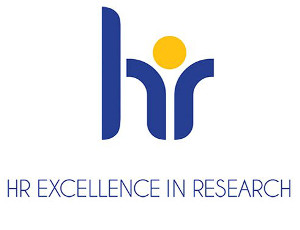
The Human Resources Strategy prepared by the Jagiellonian University was sent to the European Commission on 15 November 2016. The logo is awarded within the framework of the Human Resources Strategy for Researchers, aimed to better the quality of working life of scientists. The goal is to increase the number of staff European scientific institutions.
Institutions operating within the R&D sector, such as research institutes, higher education institutions and businesses as well as research-funding organisations that will introduce the rules of the European Charter & Code for Researchers and the Code of Conduct for the Recruitment of Researchers into their internal recruitment regulations, assuring a friendly environment and transparent human resources management will be awarded by the European Commission with the HR Excellence in Research logo.
The European Charter for Researchers is a set of general principles and requirements which specifies the roles, responsibilities and entitlements of researchers as well as of employers and/or funders of researchers. The aim of the Charter is to ensure that the nature of the relationship between researchers and employers or funders is conducive to successful performance in generating, transferring, sharing and disseminating knowledge and technological development, and to the career development of researchers. The Charter also recognises the value of all forms of mobility as a means for enhancing the professional development of researchers. In this sense, the Charter constitutes a framework for researchers, employers and funders which invites them to act responsibly and as professionals within their working environment, and to recognise each other as such. The Charter addresses all researchers in the European Union at all stages of their career and covers all fields of research in the public and private sectors, irrespective of the nature of the appointment or employment, the legal status of their employer or the type of organisation or establishment in which the work is carried out. It takes into account the multiple roles of researchers, who are appointed not only to conduct research and/or to carry out development activities but are also involved in supervision, mentoring, management or administrative tasks.
The Code of Conduct for the Recruitment of Researchers consists of a set of general principles and requirements that should be followed by employers and/or funders when appointing or recruiting researchers. These principles and requirements should ensure observance of values such as transparency of the recruitment process and equal treatment of all applicants, in particular with regard to the development of an attractive, open and sustainable European labour market for researchers, and are complementary to those outlined in the European Charter for Researchers. Institutions and employers adhering to the Code of Conduct will openly demonstrate their commitment to act in a responsible and respectable way and to provide fair framework conditions to researchers, with a clear intention to contribute to the advancement of the European Research Area.
For more information about the Human Resources Strategy for Researchers, visit www.euraxess.ec.europa.eu/jobs/hrs4r.





